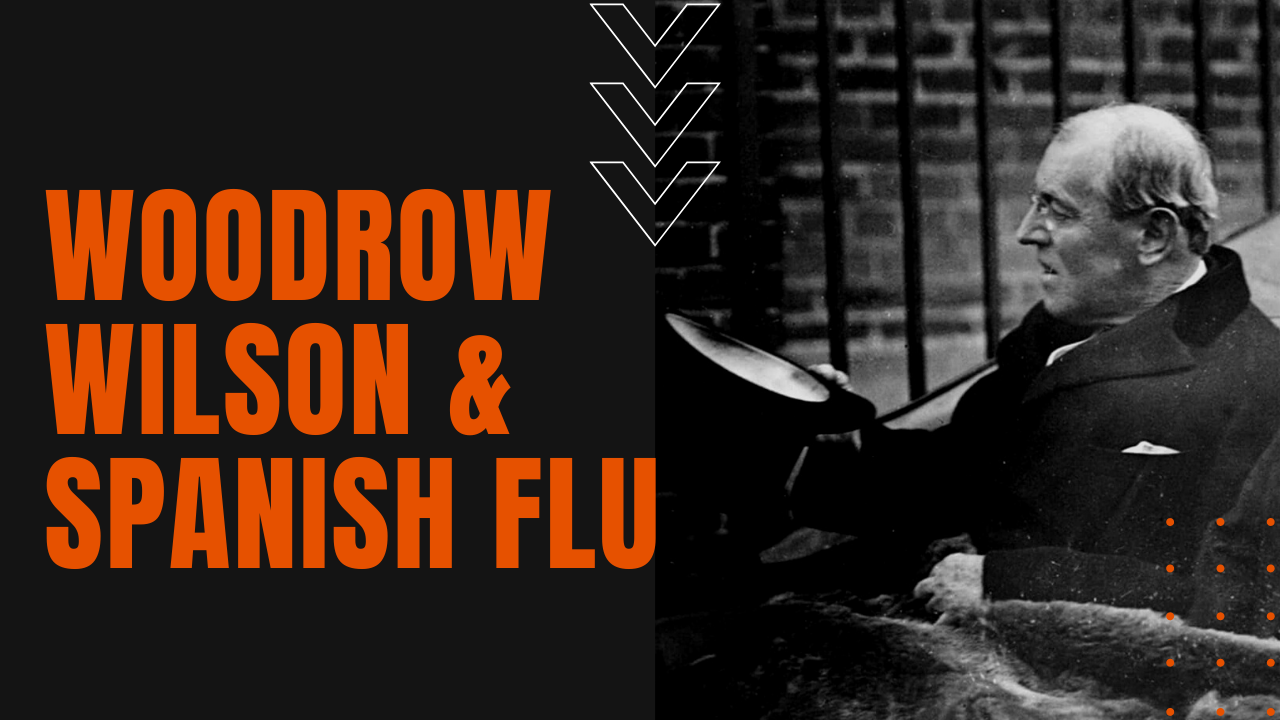Woodrow Wilson’s Spanish Flu Hallucinations at Paris Peace Accords

During the Spanish Flu Pandemic of 1918, like other presidents before and since his administration, U.S. President Woodrow Willson attempted to downplay the disease as the deadly pathogen spread to every corner of the globe.
Citing key evidence from Wilson’s papers, presidential historian Tevi Troy called Wilson the worst U.S. president in terms of handling a disaster. Troy writes in his book entitled Shall We Wake the President: Two Centuries of Disaster Management from the Oval Office, “the federal response to the influenza outbreak in 1918 can best be described as neglectful. Hundreds of thousands of Americans died without President Wilson saying anything or mobilizing nonmilitary components of the U.S. government to help the civilian population.”
Paris Peace Accords
In April of 1919, while sailing to the Big Four peace talks in Paris, Wilson and many in his staff contracted Spanish flu, including Wilson’s daughter Margaret, several members of his Secret Service detail, Wilson’s stenographer and his chief usher.
While the Big Four were trying to resolve questions concerning German reparations, the creation of the League of Nations and the threat of Bolshevism, Wilson’s hallucinatory response to the flu and its associated high fever severely jeopardized the outcome of the talks.
As the president’s illness worsened, key aides became alarmed when the normally predictable Wilson began to blurt out “unexpected orders.” On one occasion, the president created a scene over pieces of furniture that had suddenly disappeared in his suite room, even though nothing about the furnishings had been moved. The president further became convinced that he was surrounded by French spies. “We could but surmise that something queer was happening in his mind,” Chief Usher Irwin Hoover later recalled. “One thing was certain,” Hoover goes on, “he (Wilson) was never the same after this little spell of sickness.”
Wilson’s shift in mentation would forever impact the outcome of the Paris Peace Conference and ultimately The Treaty of Versailles, for while Wilson’s initial stance was that the winners of World War One “should go easy” on Germany to facilitate a lasting peace, after coming down with the flu, Wilson conceded to the other world leaders’ demands, setting the stage for a settlement so harsh and onerous to Germans that it became the leading rallying call for a revitalized German nationalism, Adolf Hitler and the advent of World War Two.
